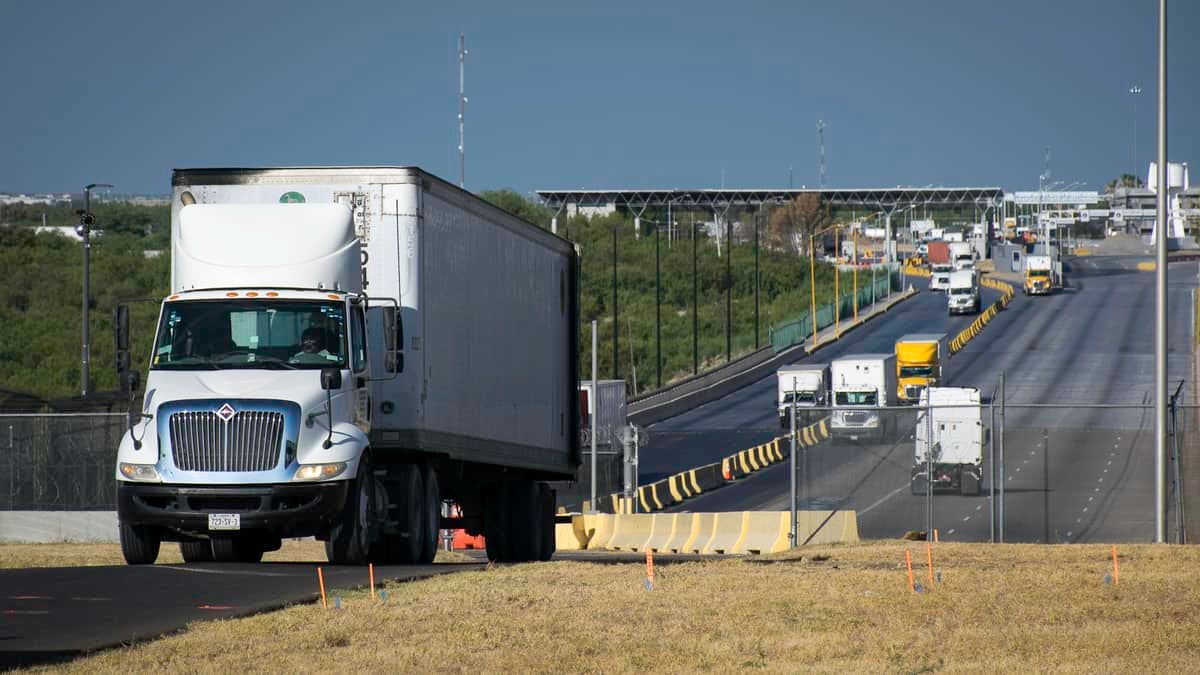Editor’s note: Kenneth Smith Ramos is a former chief negotiator for the United States-Mexico-Canada Agreement for the Mexican government. He is currently a partner at Mexico City-based Agon, Economía, Derecho, Estrategia. The opinions expressed here are those of Ramos and not American Shipper or FreightWaves.
One of the main objectives of the new trade agreement between the United States, Mexico and Canada (USMCA) is to facilitate trade in North America and create a positive business environment that provides certainty to exporters and investors in the region.
We often talk about the necessity to speed up customs procedures and eliminate bureaucracy at the border in order to reduce border crossing times. Undoubtedly, these are key issues in international trade, and that is why the Chapter on Customs Administration and Trade Facilitation of the USMCA contains some of the most advanced disciplines that have ever been negotiated in a trade agreement.

This includes provisions on advance rulings; simplified customs procedures for the efficient release of goods; cooperation between customs authorities; and the operation of the single window, among others.
In addition to these disciplines, which are fundamental to facilitate trade between the North American Free Trade Agreement (NAFTA) members, we need to face the challenge of reducing costs and mitigating the risks associated with cross-border cargo transportation.
This is of vital importance if we take into consideration that almost 70% of the trade between Mexico and the U.S. takes place by land. Even though every day almost $2 billion in trade crosses Mexico’s northern border, the process to get cross-border cargo insurance can be extremely difficult.
When the trucks arrive at the border and the boxes filled with merchandise are transferred to other trucks in order to cross the border, shippers face a chain of intermediaries that increase transaction costs.
One of these costs is the procurement of an insurance policy that covers the content of the cargo during its journey throughout Mexico and vice versa. Costs can rise from $150 to $500 for a shipment worth $100,000.
It is extremely important to insure all cargo, since we can’t ignore the fact that safety on our roads has decreased considerably. According to data from Mexico’s National Chamber of Trucking (CANACAR), since December of 2018 truck thefts have increased 70% in Mexico, with an average of 80 trucks stolen each day.
The difficulty in insuring cargo comes from the fact that the Mexican government only requires that the carrier be liable for $0.025 for every pound transported, which is an insignificant amount.
On the other hand, shippers in the U.S. and Canada are responsible for the total value of the merchandise (full liability). The client that wants to insure merchandise from Chicago toQueretaro, for example, must acquire multiple insurance policies in the U.S. and in Mexico, raising costs and reducing the efficiency of the trade operation.
Luckily, there are new North American companies that can offer a single insurance policy that fully covers cargo, from the pickup point in either the U.S. or Canada and all the way to its destination in Mexico — and vice versa.
One of these companies is Cleveland-based Borderless Coverage, certified by Lloyds of London. Borderless Coverage developed an automated portal for shippers that allows them to obtain the coverage they need instantly, 24 hours a day.
Borderless takes advantage of information technologies in order to provide a comprehensive insurance policy so the client does not have to purchase different policies in each country.
The Borderless Coverage API connects to any transportation management software (TMS), which automates the process of obtaining Mexican cargo insurance and cuts out the unnecessary and expensive middlemen.
Eliminating such intermediaries is fundamental for small and midsize shippers, since this will increase their earnings for every ton of merchandise transported and improve their reaction time and their ability to resolve any unexpected event, since shippers would be directly represented by Borderless Coverage and not by two or three different insurance companies.
Companies like Borderless are redefining the insurance market for cross-border cargo, responding to the insurance needs detected as trade in our region grows rapidly. Since NAFTA came into effect, trade between Mexico and the U.S. has grown 570% and reached almost $580 billion in value in 2018.
This growth in trade flows has created enormous pressure on border infrastructure and the human resources available to face this increased traffic at the border. It is estimated that 14,000 trucks cross the border through Laredo/Nuevo Laredo every single day, and there were more than 2 million crossings in this border entry point in 2018.
Without a doubt, investing in the modernization of the border should be a key priority for the NAFTA countries. The challenge of obtaining an insurance policy for all these border crossings represents a barrier for competitiveness in our region.
While North America shifts from the first phase of the regional integration (tariff elimination under NAFTA), to the second phase in the USMCA (the strengthening of competitiveness through the reduction of transaction costs and the elimination of non-tariff barriers), we need to start thinking of a third phase that implies advancing toward a system of mutual recognition of technical regulations and, where applicable, harmonization of standards and regulations.
In addition to cooperation between authorities, if firms like Borderless Coverage continue innovating and developing solutions that facilitate international trade, the USMCA countries could aspire to reach the goal of becoming the most competitive region in the world.











